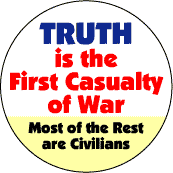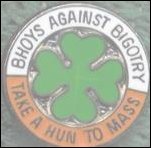
Originally Posted by
j2k4
Not merely that the government should not establish a religion, but that it adopt a hands-off stance with regard to the practice or choice of religion by it's citizens.
That the Founding Fathers wrote and abided this sentiment, then proceeded to salt their writings with religious reference should be considered the best indicator of their intent.
I don't recall off-hand, but as to the variety of religions represented among this gathering of men, I am sure were a variety of what are termed Christian religions as well as others.
The only proper conclusion would be that they agreed to adopt a passivity toward the religion/government relationship because the desire for an atmosphere of religious cohabitation was a founding premise, and also that they realized entertaining religious strictures while also attempting to formulate a new government incorporating religious freedom was a recipe for failure.
That they overlooked the eventuality the wider variety of immigration the future held would bring with it a selection of dieties not referred to as GOD should not preclude keeping the basic idea intact; indeed it should be expanded to make space for them, rather than constricted in any way, much less with any sort of selectivity.
Agree with this or not, that this is not clear to at least a few of you disheartens me beyond words.
Let me think out loud here. I assume that the majority of your founding Fathers would themselves have been Christian (of one flavour or another). They would therefore almost certainly be founding your new country on Christian values.
They then look at places like England, where the state is inextricably linked to one branch of Christianity, Anglicanism (the name's a giveaway) and decide that is wrong, that one branch should not have influence over governing everyone.
Could they, when speaking of religion, not actually be referring to Christianity, but to specific "branches" of it. In effect saying that the State would not adopt one particular religion (subset of Christianity) but instead would allow freedom of religion to all it's people. They would not allow one group to form part of the Government (Anglican Bishops in the Lords), but would seperate the State from it.
Thus making any reference to God OK, as it would be one area where all of the Christian religions agreed.
A lot of chaps, particularly at that time, would not define their religion as Christian, but as the particular form of Christianity that was their own faith. It would then make sense, when they were using the word "religion" that it was actually specific types of religion they were referring to.
Sorry if that's a bit rambled, but do you understand what I'm talking about.
Originally Posted by j2k4











 Reply With Quote
Reply With Quote






Bookmarks